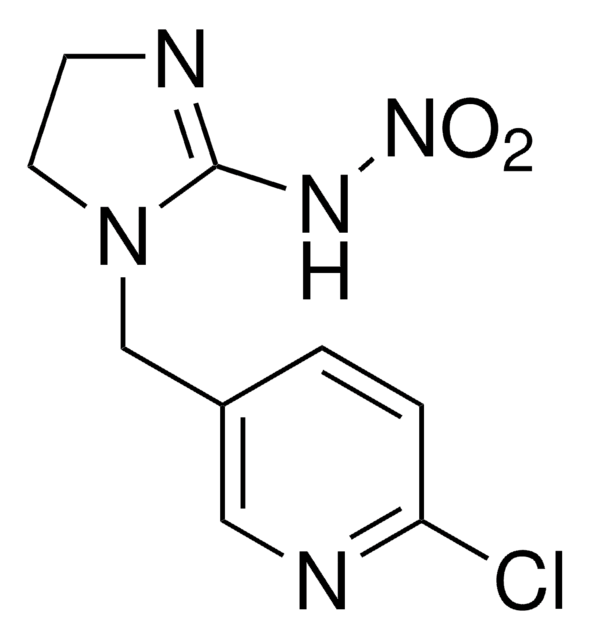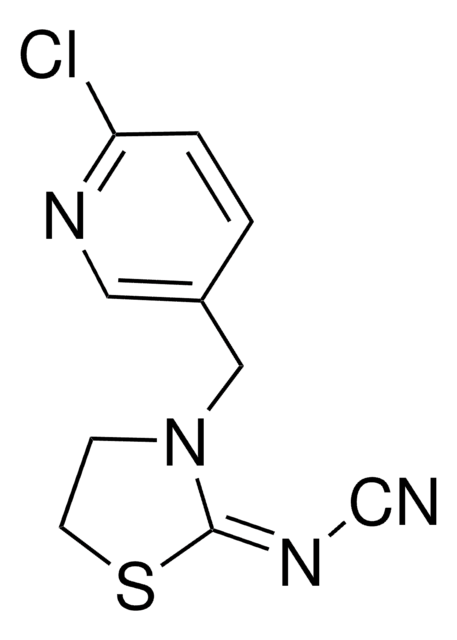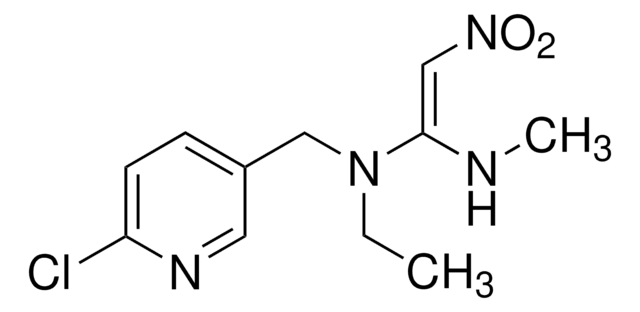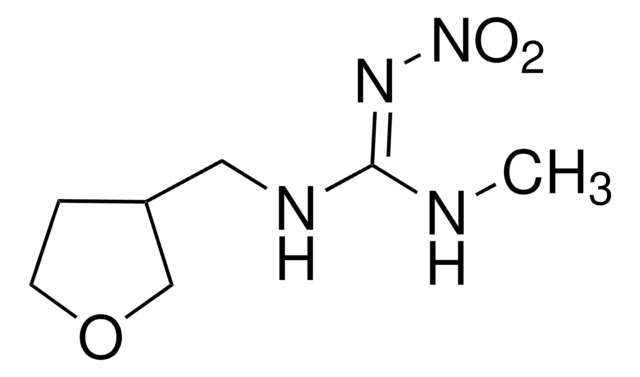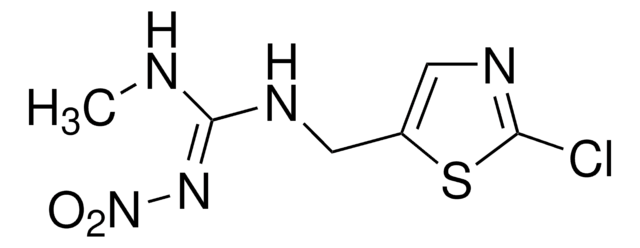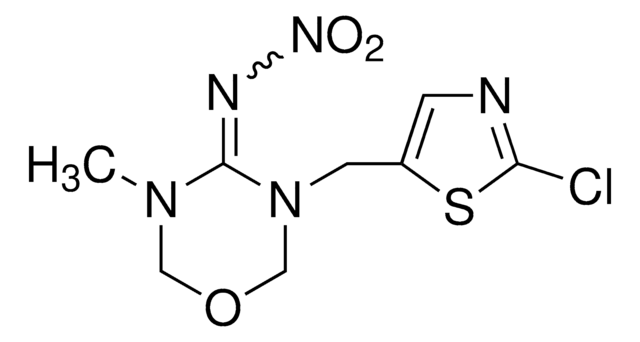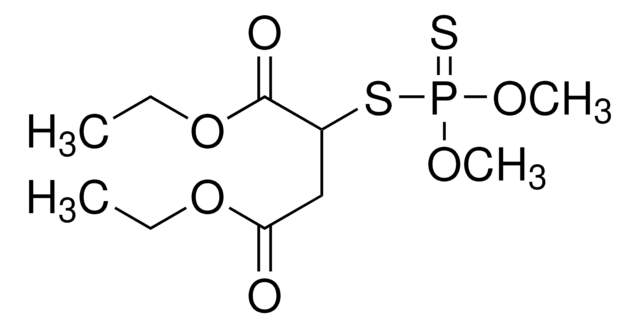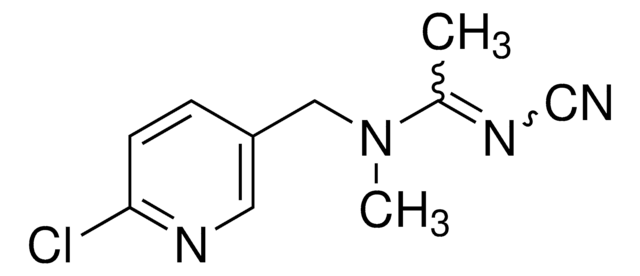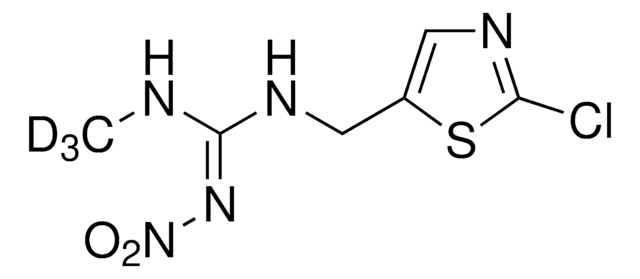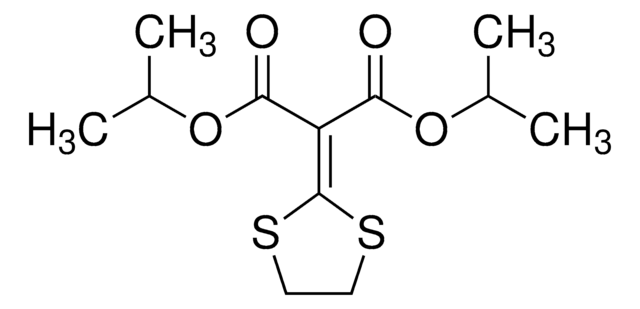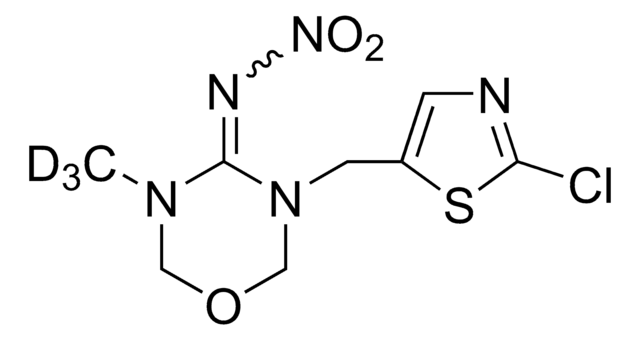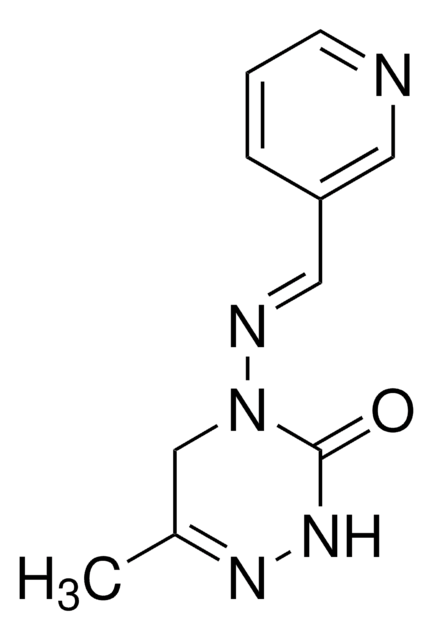About This Item
Recommended Products
grade
analytical standard
Quality Level
product line
PESTANAL®
shelf life
limited shelf life, expiry date on the label
technique(s)
HPLC: suitable
gas chromatography (GC): suitable
application(s)
agriculture
environmental
format
neat
SMILES string
CCN(Cc1ccc(Cl)nc1)\C(NC)=C\[N+]([O-])=O
InChI
1S/C11H15ClN4O2/c1-3-15(11(13-2)8-16(17)18)7-9-4-5-10(12)14-6-9/h4-6,8,13H,3,7H2,1-2H3/b11-8+
InChI key
CFRPSFYHXJZSBI-DHZHZOJOSA-N
Looking for similar products? Visit Product Comparison Guide
Related Categories
General description
Find more information here: Neonicotinoids
Application
Legal Information
Signal Word
Warning
Hazard Statements
Precautionary Statements
Hazard Classifications
Acute Tox. 4 Oral - Eye Irrit. 2 - Skin Irrit. 2 - STOT SE 3
Target Organs
Respiratory system
Storage Class Code
11 - Combustible Solids
WGK
WGK 2
Flash Point(F)
>158.0 °F
Flash Point(C)
> 70.00 °C
Personal Protective Equipment
Choose from one of the most recent versions:
Certificates of Analysis (COA)
Don't see the Right Version?
If you require a particular version, you can look up a specific certificate by the Lot or Batch number.
Already Own This Product?
Find documentation for the products that you have recently purchased in the Document Library.
Customers Also Viewed
Articles
Determination of Neonicotinoids in Honey using a Chromolith RP-18 HPLC column and UV Detection
Protocols
Extraction and Analysis of Neonicotinoid Pesticides from Flower Blossoms Using Supel™ QuE and Ascentis® Express
LC/MS/MS Analysis of Neonicotinoid Pesticides in Dandelion Blossoms on Ascentis® Express C18 after Dispersive SPE (QuEChERS) using Supel™ QuE
Learn more about Neonicotinoids - active substances used in plant protection products to control harmful insects.
On Friday, April 27, 2018, the European Union decided to ban the use of three neonicotinoid insecticides from use on field crops, having deemed them dangerous to bees. This application demonstrates the analysis of these banned compounds and others from dandelion blossoms using QuEChERS and LC-MS.
Our team of scientists has experience in all areas of research including Life Science, Material Science, Chemical Synthesis, Chromatography, Analytical and many others.
Contact Technical Service